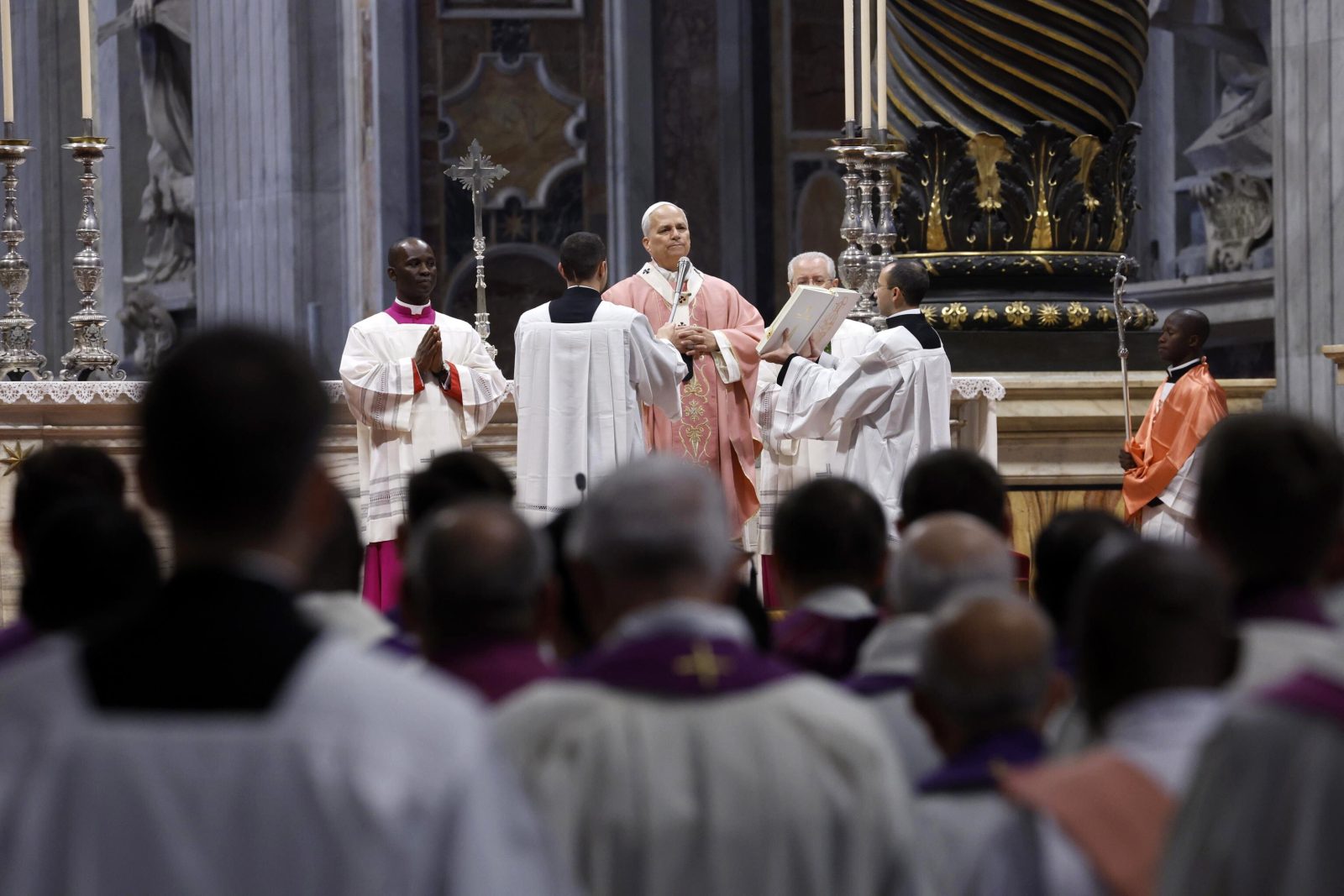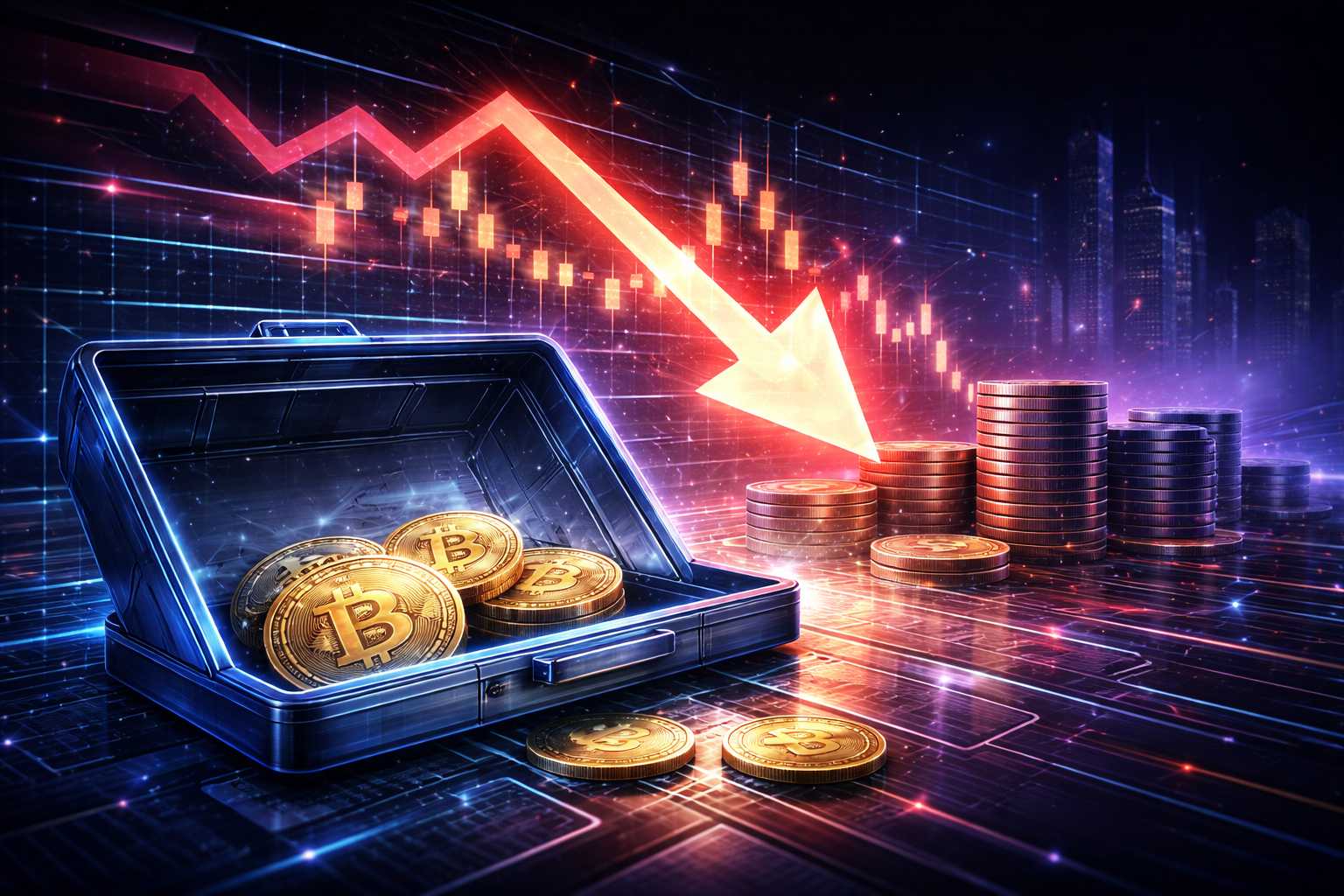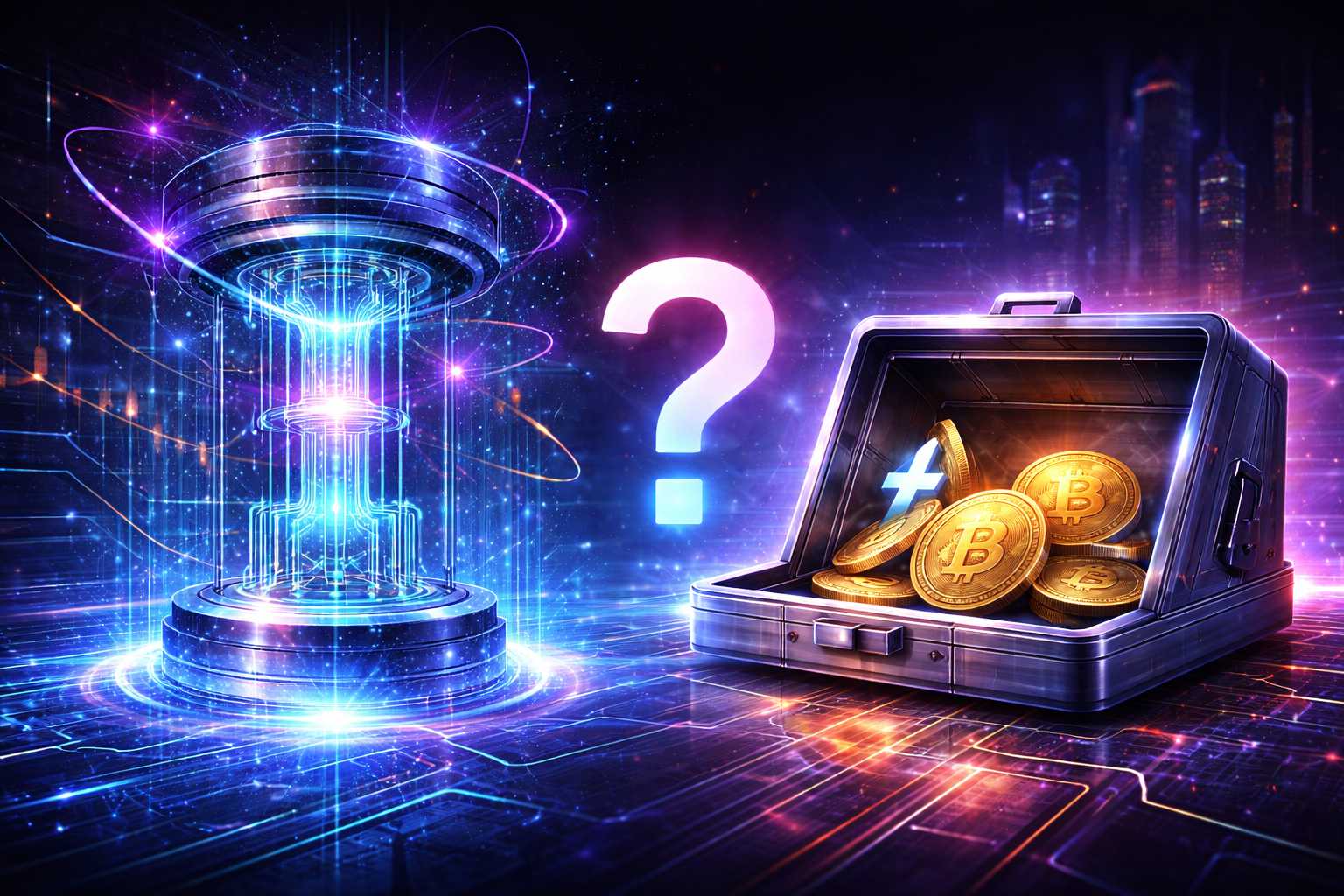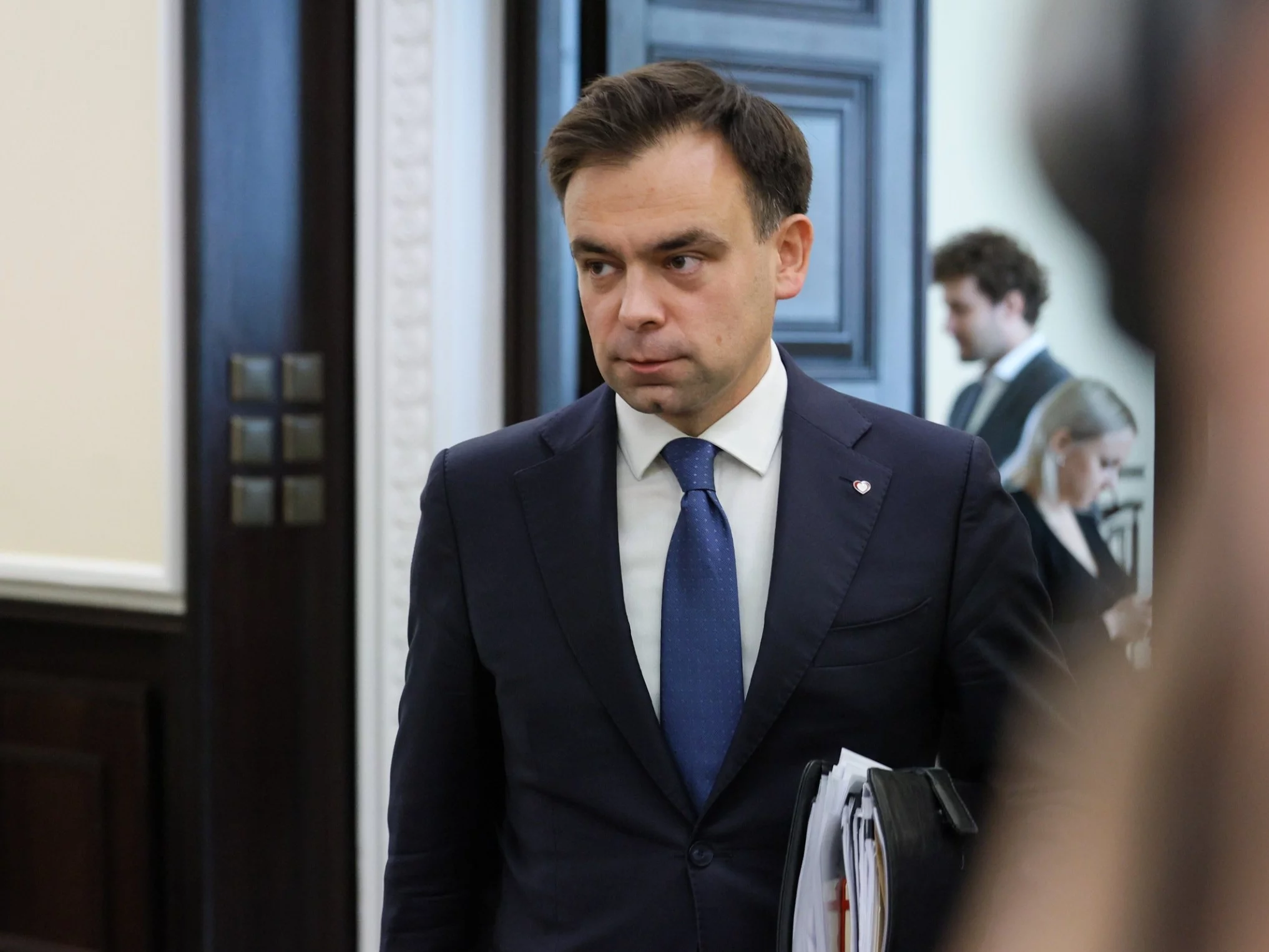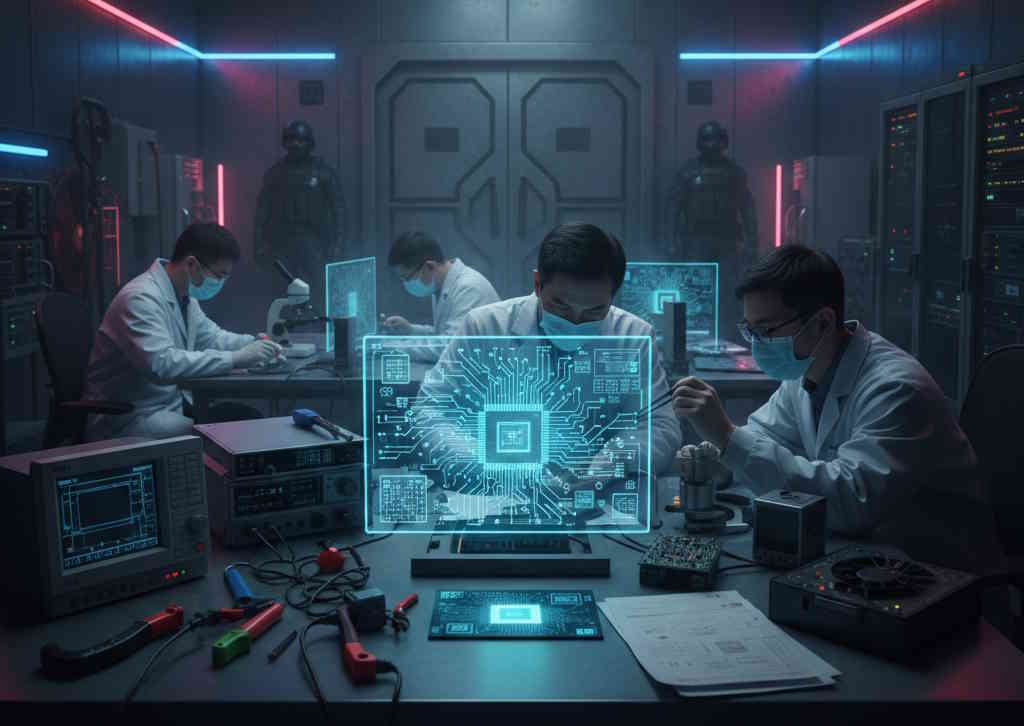Herman Van Rompuy
pierwszy stały przewodniczący Rady Europejskiej w latach 2009 2014, premier Belgii w latach 2008 2009
first Permanent President of the European Council in 2009-2014, Prime Minister of Belgium in 2008-2009
I will try to summarise a complex situation for the world and for the EU and its member states in a few key words without falling into simplism.
Those words are: unity, democracy, autonomy, long term, more Europe.
Unity
We live in societies that are fragmented because individualisation has become a feature of our times. Apparently every person has his or her own truth. There is, of course, nothing wrong with debate and dissent or with freedom of opinion and emancipation, but there is a downside often in terms of lack of openness and real dialogue and a downside in terms of even hostility and enemy-thinking. There should always be readiness to listen to others. Unfortunately, today that is less the case.
The multi-plicity and volatility of individual opinions and emotions translate into volatile election results and a fragmented political landscape with many political parties. It makes governing difficult at all levels of power. So, the crisis of democraties is linked to the crisis of societies. The latter is also visible in the deficits in mental well-being (burnout, depression, suicide, addictions), especially among youngsters. I have no immediate solution to this but we need to look lucidly at the world we live in. These changes in civilisation will not suddenly get resolved. Civilisations change slower than economic markets or election results!
The EU is the sum of 27 divided democracies and societies. But the EU institutions are less blocked and more capable of making decisions than is often said. In the European Parliament, the president of the European Commission was elected recently with a solid majority. The two far right minority groups represent ‘only’ about 20% of the seats. Within populism, moreover, there are important differences on policies. Not all populist are anti-Western or pro-Putin. Certainly not. In spite of this political fragmentation, the European Council of Heads of Government has mostly found consensus in recent years. It is not because a small country opposes that 98% of the rest of the Union is paralysed. Unanimity is needed for major decisions in the EU. It is an uphill task but this consensus has also been found every six months so far f.i. for sanctions against Russia.
Compared to the Union, the US is even more heavily divided politically and has actually become an almost blocked society. Brexit split the UK into two camps hostile to each other. In dictatorships, there is apparent unity until the bomb bursts as happened in 1989 when the Soviet Union broke up totally unexpectedly. That is not the last time an empire or empires will disintegrate in the future. History is full of surprises.
The next few years are bound to be tense for the EU and its member states because the two largest countries have become politically less stable internally. This makes cooperation between France and Germany difficult. The respective governments are permanently preoccupied today with internal survival. The EU has always needed the Franco-German engine, especially on socio-economic issues . We miss it today. The European Commission cannot fully take over that role because it can only make proposals but the big decisions lie with the European Council of the 27 heads of state and government. And those big decisions will be needed to continue supporting Ukraine, to set up a European industrial policy, to cope with competition from the US and China, to fight fierce climate change. Individual countries can never win that battle. We need much more European cooperation and integration. The EU is part of the West. We have seen a revival of the West and the G7 in the last four years and a strong NATO that even welcomed two new members. In case of a regime change in America, the EU will have to take more its fate into its own hands and become even more ‘strategically autonomous’ and sovereign.
Unity in itself is valuable but it must be unity to achieve something, to get results for our citizens, to create a more prosperous, sustainable and happier society.
Democracy
The next few years will not just be about the economic or money, however important, but about values. One of those key public values is democracy. For this, by the way, other personal values are indispensable such as respect for every human person and his or her dignity, such as openness and dialogue. Without this moral base there will be no lasting support for fundamental freedoms, rule of law and an independent judiciary, fairness in the distribution of wealth and prosperity. Today, the trust, the ‘faith’ of a part of citizens (20%) in democracy has declined sharply in Western Europe going as far as preferring authoritarianism. However, the same sceptics of democracy cannot imagine that they will have to keep quiet on social media in an authoritarian regime and that they will only be left with obedience, in a society where people were used to enormous freedoms. This addiction to freedom and debate reassures me about the future of democracy in the longer run but we shouldn’t take risks.
Today, pillars of democracy and the rule of law are under threat in a number of countries. The EU is cracking down on them, but what might happen if radical parties made it in some big countries, outside Poland where they lost the elections? Our democracies must be defended against internal enemies and the parties of the centre should only cooperate with pro-European, pro-Ukraine and pro democracy parties. Moderates sometimes think they are smart by cooperating with that kind of non like-minded parties but they dig their own graves. However, democracies must also pursue performing policies on security, purchasing power, illegal migration and climate. Results will eventually convince people of the added value of democracies. The Europe of results.
I emphasise democratic values because a Europe in the grip of extremists of all kind, would have major political repercussions also on foreign policy, on the role of Europe in the world. Extremists in Germany have recently been successful in regional elections because they no longer want to support Ukraine.
This could therefore have geopolitically dramatic consequences, starting with Ukraine. Domestic policy determines foreign policy. Security is not an isolated issue from other policies. Without internal political stability, there is no external stability in the long run.
Autonomy
For too long, many in the EU have had a blind faith in the primacy of economics. There was a good reason for this: trading with each other within the Union made us dependent from each other and countered the tendency to go to war. After all, war would destroy the shared prosperity to which so many citizens were attached. The naivety was to think that what was good for the EU was also good for the world. It is not so because for other global actors there is the primacy of politics. Nationalism prevails: the primacy of the glory of nation-state, the opposite of what we are trying to do in the EU since 75 years. Moreover, in Russia, the drive for reconquest, to restore the Soviet Empire prevails, also with weapons and at the cost of hundreds of thousands of human lives. For them, not every person counts, not even a Russian. This difference with the EU view implies that we live in two civilisations, certainly at the level of political systems.
A second reason for the end of our naivety is that some countries do not play by the rules. They subsidise exports and investments or impose tariffs to make imported goods and services more expensive than the domestic ones.
We have come to realise after the Trump years, after the invasion of Ukraine and after Chinese assertiveness globally, that we need to take our destiny much more in our own hands. We continue to believe in open markets as long as they do not jeopardise our security and if everyone abides by international agreements. We use our new trade defense instruments to protect us against unfair competition. We protect without falling into protectionism. Strategic sectors and activities should not fall into hands of not like-minded countries. They should flourish in Europe itself. We are behind on e.g. electric cars and AI. We have to catch up. Our climate policy towards renewable energy will make us much less dependent on imported fossil fuels. We have already largely and very quickly freed ourselves from Russian gas. We need to become more competitive on global markets not so much through low costs but through innovation and by forming powerful, large European companies. Scale matters globally. For example, on economic competition, we should not only look at whether some of our own companies are too dominant in own our single market but ensure that our companies are large and competitive enough in global markets. At the same time, we need to create a true European capital markets union to provide also start-ups with sufficient funds in a timely manner. Mario Draghi confirmed what we already largely knew but gave it a sense of urgency. If we want to be and remain strategically autonomous and prosperous, this will come at a price. We need to give the European Commission another chance to provide its own European funding as we did in the Covid era with a fund of 800 bn euro. A number of countries have not yet understood this and are still prisoners of concepts of the past. It is not a time for calculators of national benefits or costs but for European daredevils. Even in the EU, taboos have to fall.
In the 1960s, the then EU was also lagging behind the U.S. We made up our ground through Delors’ single market in the eighties. Now we have less time for catching up. Germany in particular needs to end the economic stagnation it has fallen into. Germany needs another ‘economic miracle’ as they did in the past! But one country alone can no longer do that. That time has passed. The Draghi report is a long plea for ‘more’ Europe, not less Europe.
In short, we need to become much more autonomous and thus less dependent on military security, food, energy, batteries, lithium, chips, AI, migration and others. This greater European sovereignty is not an end in itself but a means to sustain the European social models and our democracies. We do not want to ‘make Europe great again’ but neither do we want it to be made small!
Long-term vision
Short-term thinking is typical of the current mentality in our societies and democracies and in parts of the economy. Regarding the latter, the financial crisis has taught us how dangerous reckless behaviour is. Complacency is another cause of shorttermism. The European automotive industry missed the train of electric cars and is now condemned to a race to catch up. Growing societal individualisation and political fragmentation automatically bring shorttermism, the preference for ‘hic and nunc’. After all, political parties have often become too small to take big risks needed for future-oriented projects . Climate policy is in function of the long term although we are already seeing already today the negative consequences of climate change. I am of course thinking of the dramatic flooding in Central Europe as we experienced in Wallonia two years ago. The Commission proposed a courageous climate plan (the Green or Clean Deal) and the Council and Parliament approved it. As it became concrete, support from part of the population and from the private sector decreased. Of course there must be room for adjustments and amendments, but the direction, and where possible, the speed of the Deal, must be maintained. Climate is also too existential for humanity. Therefore it cannot be the subject of geopolitical rivalry. Cooperation on climate change , for instance with China, should be possible.
Long-term vision for the EU also entails decisively opting for its enlargement. Some member states look at enlargement with a calculator in hand. They miss the bigger picture, a vision of Europe as a continent of peace and democracy, of values. By enlargement I mean mainly towards the countries of the Eastern Partnership,especially Ukraine and of the Western Balkans, at least if the countries there really want it themselves. Of course candidate members must respect the ‘acquis communautaire’, subscribe to the Union’s common foreign and security policy and live the democratic values in word and deed. We have enough problems with existing members not doing that!
The 27 should recognise that Russia is trying to regain ground after losing control of 100 million people in Central Europe and the Baltics in 1989 with the fall of the Berlin Wall. All this on top of the loss of 100 million people in other parts of Europe and Asia now living in independent states.
China itself lost much attractiveness in the EU due to its ‘friendship without limits’ with Russia and its de facto support for the invasion of Ukraine.
With Russia, we are decoupling almost completely across the board. With China we are de-risking, a balance between our economic and security interests. China is a partner, a competitor and a systemic rival. It also became the friend of an enemy. It changed our relationship dramatically.
As Europeans, we cannot be focused only on our own continent. Therefore, we must forge alliances on a global scale. In recent years, we concluded successful free trade agreements with Japan, Vietnam, Canada, New Zealand. It is unfortunate that the Mercosur agreement with Brazil and Argentina has not yet been finalised, partly also because of continuing objections within the Union. We should not be naive but neither should we be closed. I could also talk about Africa with its immeasurable mineral resources and high potential for migration due to the gigantic population explosion (up from 1.2 billion today to four billion people by 2100). Again, the EU is taking initiatives but not convincingly enough.
A long-term view is not an intellectual concept but a geopolitical or geo-economic praxis. The war in Ukraine should definitively free us from sleepwalking. The consumer society makes us quickly succumb to easy and quick solutions and folding back on ourselves. But there is no room any more for ‘business as usual’. Those who cling too much to short term stability by letting things go, reap instability in the long run. In general, we should have the mindset of investors, less that of consumers.
The long term also has a demographic dimension. The European Union, Russia, China, Korea, Japan are facing more and more population decline and ageing, every year. We have known the figures for decades. Politics does not have much control over the number of births although much more can be done on child-friendly family policies. The more economically productive we are the less need there is for migrant workers, compensating lower birth rates. Higher productivity relates to economic and industrial policy. Over the last 20 years, product per man-hour in the United States grew twice as fast as here.
The digital revolution is not yet revolutionary enough in the Union. If we want to stem future mass labour migration and populism, we have to opt for a bold policy that gets us out of the slow growth of productivity per man and per hour by fully engaging in the digital and environmental transition. This requires political courage that the populist parties lack because they want to be or remain popular. So higher productivity is not only a matter of economic survival but by stemming excessive labour migration it is also important for the internal political stability of our societies. For all this we need ‘more Europe’. Individual member states cannot cope with that challenge.
More European cooperation and integration
Do we need a new European Treaty for a better functioning of the Union? I would add that I myself am in favour of amendments in the Treaties (on the unanimity rule for major decisions, of course) rather than a general overhaul of the Treaties. The last exercise of that kind took eight years. We shouldn’t get caught up in a big institutional debate that divides member states and citizens at a dangerous time when we absolutely need unity.
I mentioned the need for ‘more Europe’ already several times. For the sake of unity, it is not a good idea to weaken one of the pillars of the Union by reintroducing national border controls and endangering the passport free Schengen zone. We also need to further strengthen the EMU, that other pillar of the Union. Little work has been done on this over the past 12 years. The priority today is the European Capital Markets Union (CMU). The European Council intends to reach an agreement on this soon. The third pillar, the single market -the largest in the world- is not yet single enough, especially for services. Enrico Letta’s report pointed this out well.
All this does not mean that nothing has happened in the Union to achieve all these objectives mentioned in this account. On the contrary. A number of reforms such as the Chips act, the Critical raw materials act or the Pact on Asylum and Migration are in progress. Evidence of this also are: the increase of national and European defence budgets and the strengthening of military cooperation within NATO and within the Union, the support to Ukraine. We have to implement the Clean deal and start implementing the Draghi proposals. We know what to do. There is no shortage of ideas. Twe need the Europe of the results. We must also be prepared for the possibility of unforeseen developments that will necessitate a unified and forceful response. I am thinking of a possible change of power in the US and all its consequences on the war in Ukraine which is existential for the EU. That is why we need strong European institutions and strong member states. It is possible that we may react more united and stronger than feared as we did in the pandemic and the in the first months after the Russian invasion. As a matter of fact, the Union has surprised many throughout its young history,and in the recent past. We even surprised ourselves.
I am a man of hope. We badly need hope. Hope is a verb. We have to create our own hope. It is not passive but an active concept. Hope is the opposite of fear. It is an expression of vitality and life. Fear kills.
I’m a man of hope.



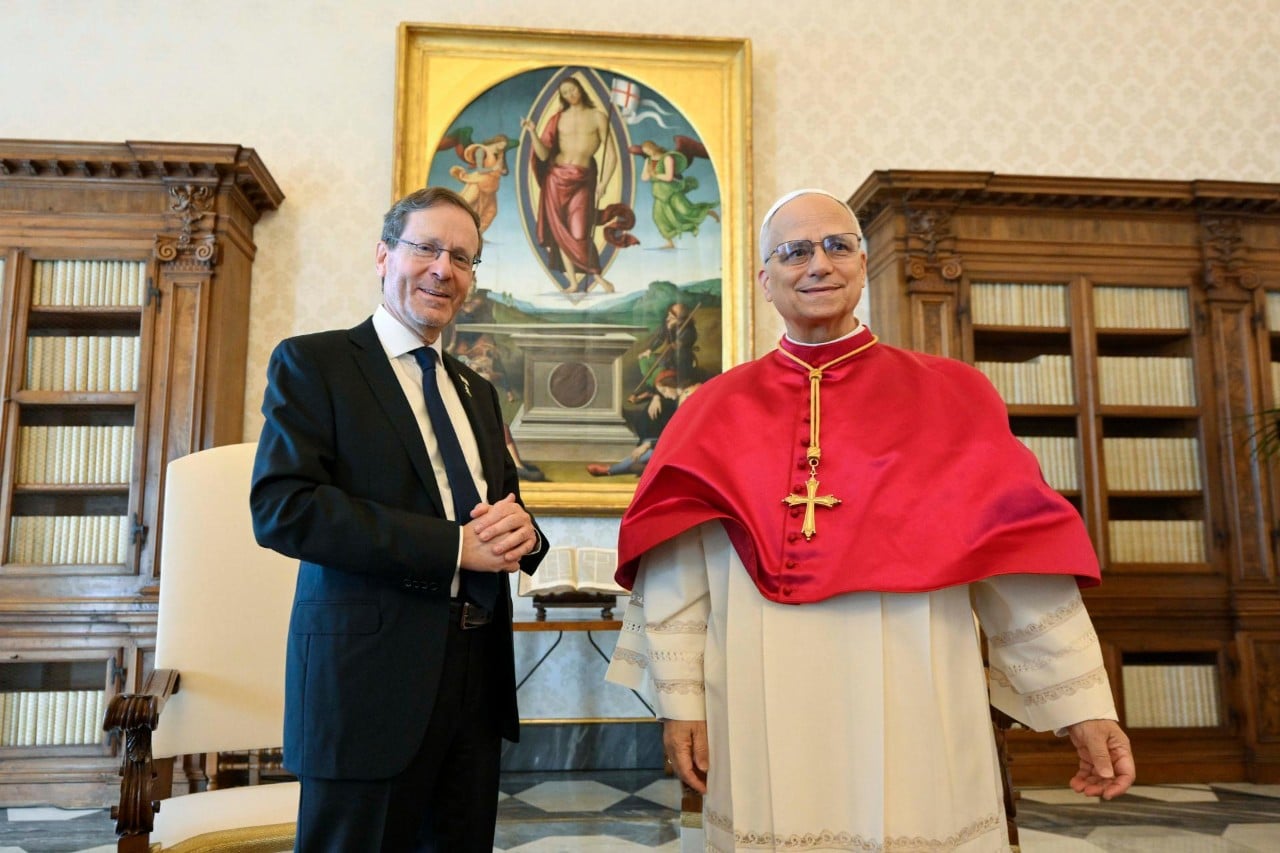
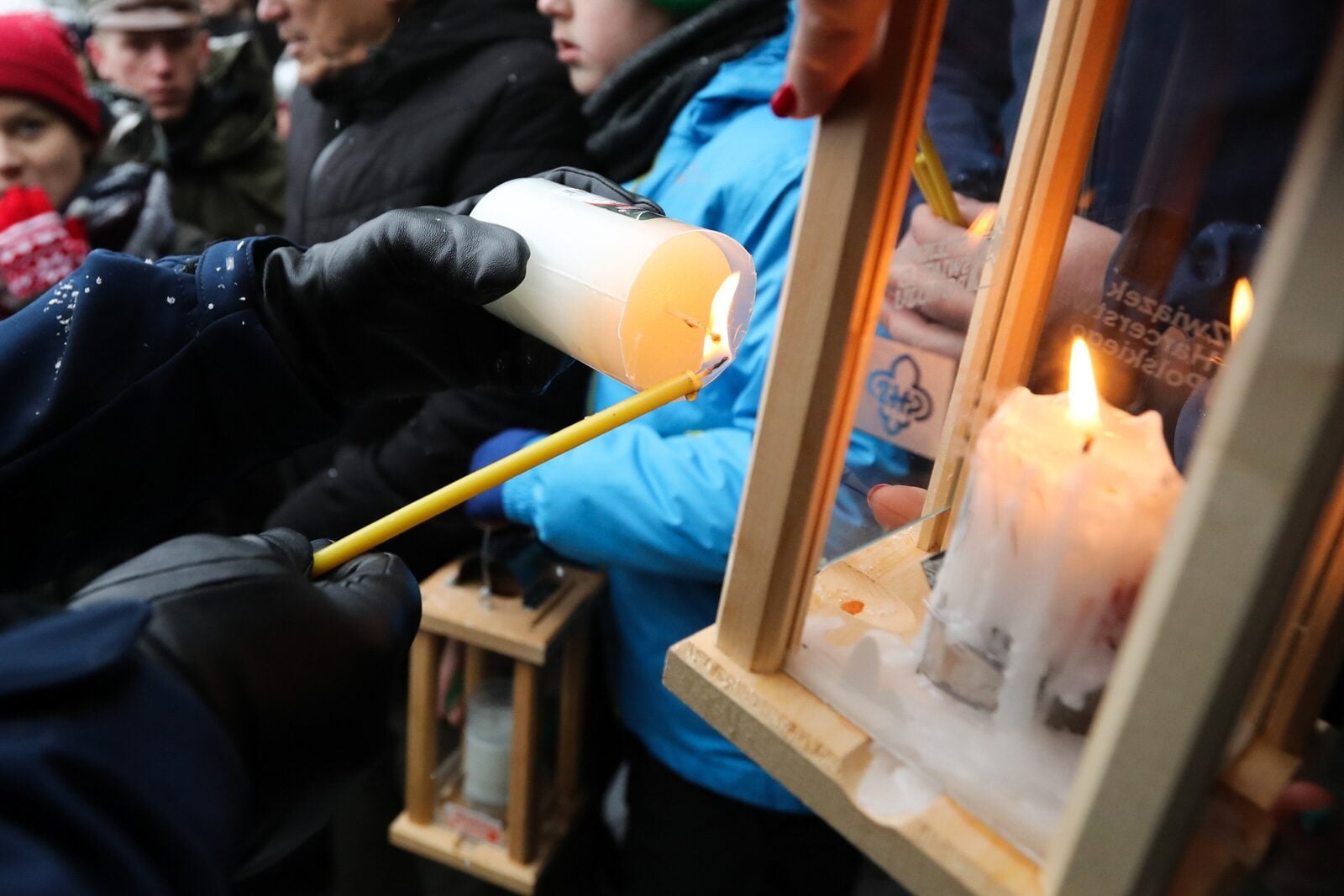

.webp)
